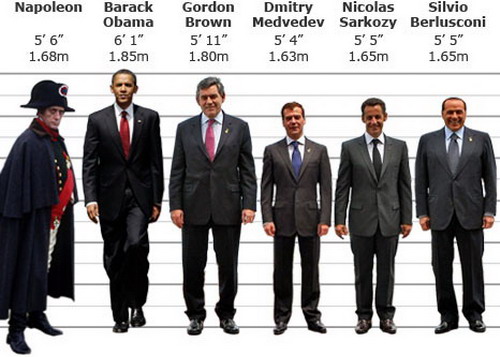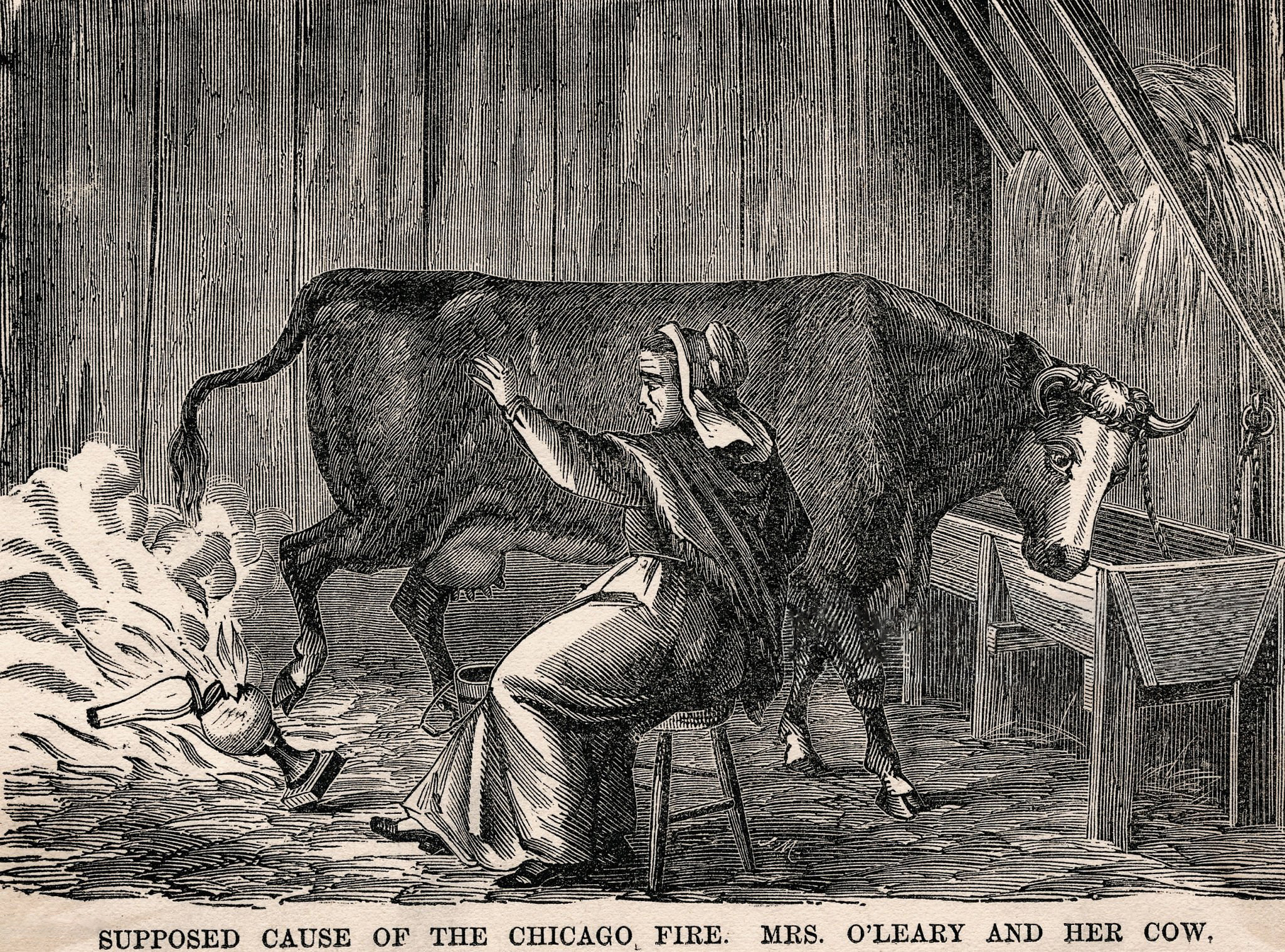This popular myth reportedly stems from comments made by former Israeli Prime Minister Menachem Begin when visiting Egypt in 1977, according to Amihai Mazar, professor at the Hebrew University of Jerusalem.
"No Jews built the pyramids because Jews didn't exist at the period when the pyramids were built," Mazar told the AP.
Recent archaeological finds actually show that Egyptians built the pyramids themselves.
"The myth of the slaves building pyramids is only the stuff of tabloids and Hollywood," Dieter Wildung, a former director of Berlin's Egyptian Museum, told the AP. "The world simply could not believe the pyramids were build without oppression and forced labor, but out of loyalty to the pharaohs."
Cleopatra belonged to the Ptolemaic dynasty, a family of Greek origin that ruled Egypt after Alexander the Great. Her family actually refused to speak Egyptian, and she was the first to learn the language.
The misconception about her nationality may have arisen from the way she represented herself in public — as the reincarnation of Isis, an Egyptian goddess.
 3. Vikings didn't wear horned-helmets.Archaeological evidence doesn't show any evidence of horned-helmets. Death sites instead tell us most Viking warriors went bare-headed or wore leather headgear, according to The History Channel.
3. Vikings didn't wear horned-helmets.Archaeological evidence doesn't show any evidence of horned-helmets. Death sites instead tell us most Viking warriors went bare-headed or wore leather headgear, according to The History Channel.
This popular, albeit false, image of burly men striding into battle with horns apparently dates back to the 1800s, when Swedish artist Gustav Malmströmstems included the imagery in his work. Some of Wagner's operas also included costumes with horned-helmets.
Columbus struck land in the Caribbean and also explored Central and South America, but he never set foot on North America. Nonetheless, the U.S. celebrates Columbus Day every year.
Also, thinkers as far back as Pythagoras, a Greek mathematician in the sixth century B.C., knew the world was round. Columbus even supposedly planned his trip using a copy of Ptolemy's "Geography," which included theories about the world's spherical shape.
First of all, the Pilgrims ate numerous meals for giving thanks before the one typically cited as the origin of our modern holiday. Also, Spaniards in Florida celebrated a similar event in 1565, well before the Pilgrims in 1621 (indeed, historians don't know if the legendary 1621 dinner even happened.
It's also not clear what the Pilgrims ate at this famous dinner. Some accounts put venison on the table — though it's not surprising that roasting turkeys caught on more than the much larger and more complicated deer.
While we're on the subject, Abraham Lincoln didn't make Thanksgiving a national holiday until 1863 — on the last Thursday of every November. But wait, we used to celebrate Turkey Day on the third Thursday, right? President Roosevelt moved the holiday in 1939 to make the period between Thanksgiving and Christmas just a little longer, giving people more time to shop, thus boosting the economy. Congress later changed it back.
Well, at least he wasn't as short as we think. Yes, Napoleon stood at 5 feet 2 inches — in pre-French Revolution units — but that's about 5 feet 6 inches in U.S. measurement. That's taller than the average male height in France at the time of 5 feet 5 inches.
Napoleon may have earned the name "Le Petit Caporel" (The Little Corporal) affectionately. Still, we use the term "Napoleon Complex" to refer to small men with inferiority problems.
Jean-Jacques Rousseau wrote in his novel, "Confessions," that "a great princess" spoke these inconsiderate words. While many assume he was referring to the famous Marie Antoinette, however, there is no evidence to support this claim.
Noted biographer Lady Antonia Fraser attributed the quote to another French princess: "[Let them eat cake] was said 100 years before her by Marie-Thérèse, the wife of Louis XIV. It was a callous and ignorant statement and she, Marie Antoinette, was neither."
The quote — or something like it — had been previously attributed to many royals, dating back to Emperor Hui of Jin in Zizhi Tongjian.
First of all, Paul Revere needed to keep his knowledge of the Brits' arrival on the down-low. British troops had already camped out across the Massachusetts countryside, according to The History Channel. Also, the colonists still considered themselves British. If anything, Paul Revere probably told people on a need-to-know basis about the "regulars" — the colonists' term for British soldiers.
Washington did have horrifically bad teeth. He even wore multiple sets of dentures throughout his life made of ivory, gold, and lead — but not wood, according to the organization that runs Washington's famed estate, Mount Vernon.
Washington did love his port though. The burgundy-colored drink may have stained his teeth, making them appear brown and grainy, like wood.
Einstein actually excelled at math from a young age. The rumors that he couldn't adequately solve an equation started on "Ripley's Believe It Or Not."
In his book, "Einstein: His Life And Universe," Walter Isaacson wrote about Einstein’s response to the Ripley's claim: “I never failed in mathematics. Before I was 15 I had mastered differential and integral calculus.”
Einstein's matriculation certificate, received at the age of 17, even shows the highest marks, a "6," in Algebra and Geometry.
The Great Chicago Fire killed hundreds and burned more than 3 square miles in 1871. Contrary to popular myth, the blaze actually started in a small alley for unknown reasons. The journalist who attributed the blaze to "Mrs. O' Leary's cow" knocking over a lit lantern admitted he embellished the story.
Originally called the "three-day flu," this disease killed an estimated 50 million people in 1918 — 34 million more than World War I's causalities.
The rumor most likely started because Spain was hit early and hard with the disease, according to the History Channel. Even Spain's king contracted it.
It's nearly impossible to tell where the endemic disease originated, but John Barry, based on all the evidence available, suggests the first case occurred in Haskell County, Kansas.
Between Black Thursday and the end of 1929, only four suicides were plunges linked to the events that sparked the Great Depression. And only two of those occurred on Wall Street, Slate reported.
The president of County Trust Co. and the head of Rochester Gas and Electric did both kill themselves — but they used guns.
The rumors reportedly started when comedians began cracking jokes about the sad state of the economy. For example, Will Rogers quipped that " you had to stand in line to get a window to jump out of," according to Slate. Both the New York Times and New York's chief medical examiner tried to set the record straight but to no avail.
The Mills Commission, headed by then-president of the National League, Abraham Mills, was charged with determining the origin of America's favorite pastime. The elected body ruled in 1907 that, to the best of its knowledge, Abner Doubleday, a Civil War general, invented baseball in Cooperstown, N.Y., in 1839. The town even became the site of the National Baseball Hall of Fame and Museum.
But in his book, "Baseball And Blue In Gray: The national pastime during the Civil War," George B. Kirsch, a professor of history at Manhattan College, explains that scholars put Doubleday at West Point in 1839, not in Cooperstown. Also, upon his death, Doubleday left no notes, letters, or papers about his role in the creation of baseball.
We don't know who played the first game, though in 1938, Congress officially recognized Alexander Cartwright as the creator of modern version. He served as the founding father of the Knickerbocker Base Ball Club and finalized the diamond-shape. He's in the Baseball Hall of Fame in Cooperstown, too.












0 comments:
Post a Comment